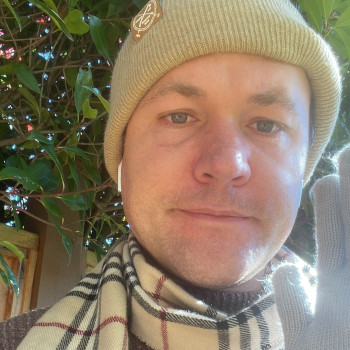Living Lakes Canada Alumni
Meet our accomplished alumni who have been instrumental in advancing water science and stewardship efforts across Canada.
Heather Leschied
Like the waters of the mighty Columbia River, Heather is a driving force in the world of freshwater protection and stewardship in Canada. Having co-founded Living Lakes Canada alongside Kat Hartwig, Heather now continues her impactful work as Water Policy Advisor with the Water Stewardship and Security Branch of the Ministry of Land, Water and Resource Stewardship in British Columbia.
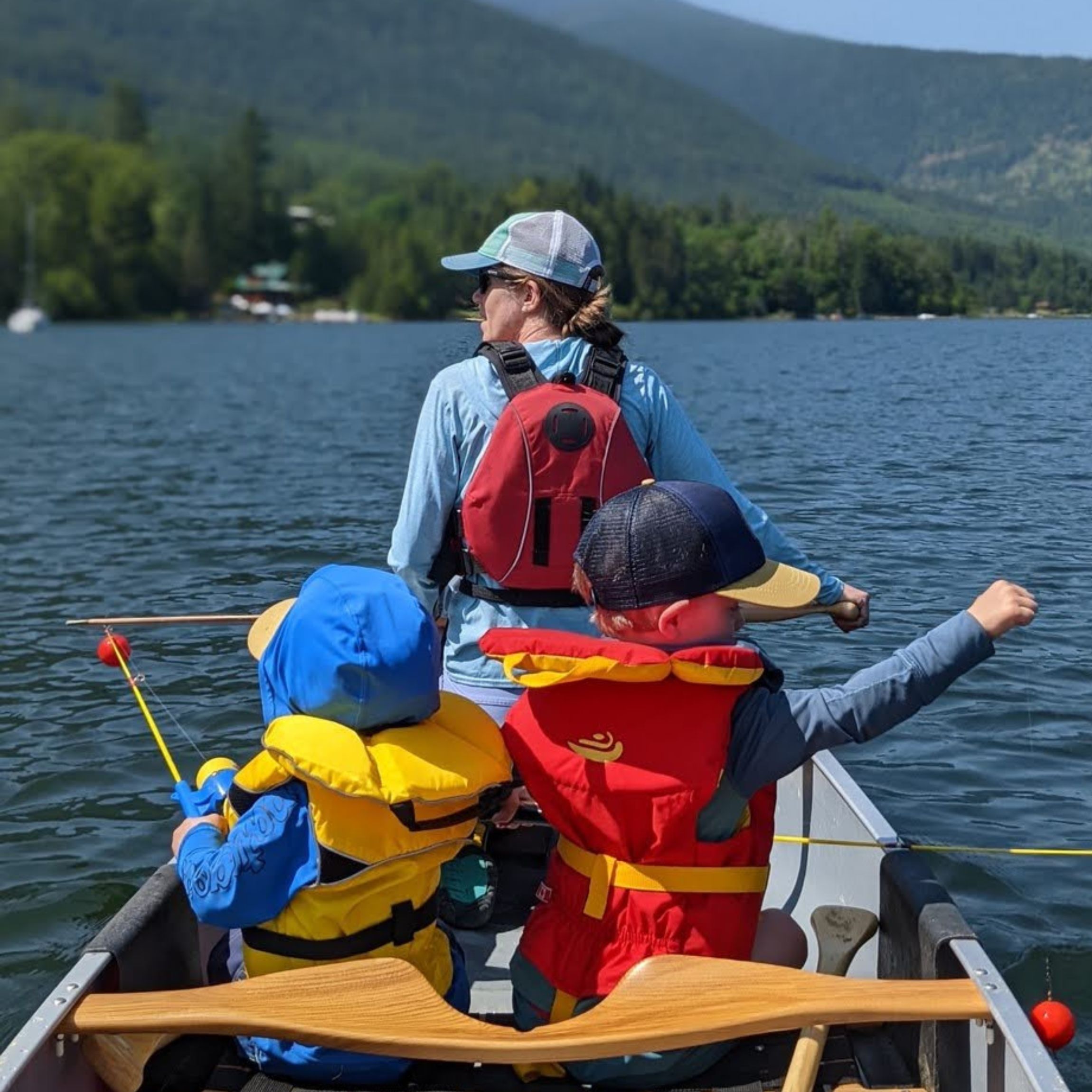 Over Heather’s 10 years as Living Lakes Canada’s Operations Director, she was instrumental in developing and delivering several programs, including the Foreshore Integrated Management Planning program alongside former Living Lakes Advisor Bruce MacDonald. She delivered CABIN training workshops to hundreds of individuals including government, industry, Indigenous and community groups, and built community-based monitoring case studies to support the creation of grassroots stewardship initiatives elsewhere in Canada.
Over Heather’s 10 years as Living Lakes Canada’s Operations Director, she was instrumental in developing and delivering several programs, including the Foreshore Integrated Management Planning program alongside former Living Lakes Advisor Bruce MacDonald. She delivered CABIN training workshops to hundreds of individuals including government, industry, Indigenous and community groups, and built community-based monitoring case studies to support the creation of grassroots stewardship initiatives elsewhere in Canada.
Heather now works with the B.C. provincial government to support the development and implementation of policies associated with the Water Sustainability Act, governance models for water, and legislation and planning frameworks that deliver on government priorities. “I get to work on similar concepts, just from a different lens,” says Heather. She credits her work with Living Lakes for providing the opportunity to develop “a foundational understanding of water stewardship and policy in B.C.” that has supported her current work.
We are fortunate to have had such an incredibly passionate person help lay the foundation of our work today and we look forward to seeing what inspiring projects Heather pursues in the future.
Hunter Smith
Hunter first joined the Living Lakes Canada team as one of our valued volunteers, supporting the Columbia Basin Water Hub. His background in environmental monitoring and conservation, as well as his passion for community-focused resource management, proved invaluable when he was brought on board as Program Coordinator for the Columbia Basin Water Monitoring Program (CBWMF).
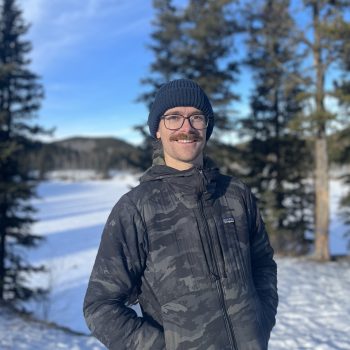 During Hunter’s time with Living Lakes, he worked to refine the Priority Monitoring Matrix (PMM), a system used to identify freshwater monitoring sites. The PMM ensures that regional community perspectives are considered alongside scientific parameters when selecting monitoring locations. This system operates as part of the CBWMF, a program to help better understand how climate change is impacting water in the Columbia Basin and inform sustainable water management.
During Hunter’s time with Living Lakes, he worked to refine the Priority Monitoring Matrix (PMM), a system used to identify freshwater monitoring sites. The PMM ensures that regional community perspectives are considered alongside scientific parameters when selecting monitoring locations. This system operates as part of the CBWMF, a program to help better understand how climate change is impacting water in the Columbia Basin and inform sustainable water management.
As Program Coordinator, Hunter also co-authored a journal article on the CBWMF, featured as a case study in Water International. “Having this peer-reviewed article published highlights the great work being done in the Columbia Basin and solidifies Living Lakes as a leading expert in community-based monitoring on a world stage,” said Hunter.
Hunter has since joined Clifton Engineering Group as a Junior Hydrologist, working on projects in western Canada ranging from water sourcing to dam safety analysis.
When asked to reflect on his time with Living Lakes Hunter noted, “My biggest take-away was how passionate and driven the team at Living Lakes is. There are a lot of really knowledgeable people doing great work there.”
Heather Shaw
In Canada, we are fortunate to call beautiful mountainscapes, glaciers, and alpine lakes part of our home. We are also fortunate to have dedicated and impactful individuals, like Heather, working to protect these delicate ecosystems.
 Heather first joined the Living Lakes Canada team in 2021 as a Biomonitoring Technician, helping to deliver CABIN training sessions across Canada. After completing her Bachelor’s Degree in Natural Resource Science from Thompson Rivers University in 2022, she was invited to take on the lead for the High Elevation Monitoring Program. With third party assistance, she developed the program, established long-term monitoring sites in subalpine and alpine environments, and collected and interpreted freshwater data.
Heather first joined the Living Lakes Canada team in 2021 as a Biomonitoring Technician, helping to deliver CABIN training sessions across Canada. After completing her Bachelor’s Degree in Natural Resource Science from Thompson Rivers University in 2022, she was invited to take on the lead for the High Elevation Monitoring Program. With third party assistance, she developed the program, established long-term monitoring sites in subalpine and alpine environments, and collected and interpreted freshwater data.
Heather now works as a Junior Biologist with Masse Environmental Ltd. while pursuing her Registered Professional Biologist (RPBio) accreditation. Through her work with Living Lakes, Heather was able to strengthen her skills in project management, relationship building, research, project design, report writing, and budget management. “I feel confident that my time with Living Lakes will allow me to excel in my new role and my career as a biologist”, said Heather.
Heather’s appreciation and respect for the natural environment is evident to those who have the pleasure of working alongside her. “Water is essential for all living things. We must protect this vital resource for current and future generations, not just for ourselves but for all species,” she noted.
Thank you, Heather, for your valuable contributions to protecting some of our most at-risk ecological communities.
Michael Stockermans (he/him)
One of Living Lakes Canada’s primary goals is to provide high-quality, easily accessible freshwater data to communities and decision-makers to support sustainable water management. Michael helped to further this goal during his time working with Living Lakes’ Columbia Basin Water Hub, our open-source repository for water data.
As a Data Assistant, he helped with various data-related tasks, including converting Excel files into CSV file formats with manual quality control to improve data versatility for Water Hub users. Michael also worked to enable remote data access and optimized National Lake Blitz volunteer data for analysis.
Michael has since transitioned from his Data Assistant position to studying Computing Science at Thompson Rivers University. His biggest takeaway from working with Living Lakes is that “it is essential for freshwater data from communities and local groups to be gathered, stored, and shared in a way that ensures appropriate visibility and access.”
Thank you, Michael, for sharing your passion for data processing with Living Lakes to improve freshwater data accessibility and functionality!
Shannon Nickerson
Shannon’s early sense of connection with the lakes of Southern Ontario helped to inspire her journey into freshwater stewardship. Shannon joined the Living Lakes Canada team in 2021 to support project efforts in the Columbia Valley related to water monitoring, stakeholder engagement, and communications.
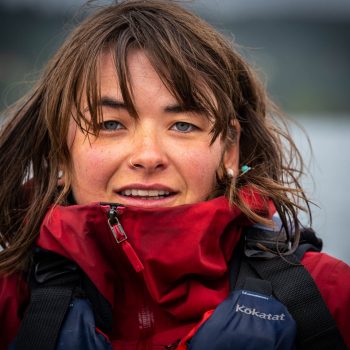 Previously holding the title of Kootenay-Columbia Headwaters Local Reference Group Coordinator, Shannon’s role with Living Lakes was to connect with individuals, organizations, businesses, Indigenous groups, and local government to better understand the shared interests and values of freshwater in the Kootenay-Columbia Headwaters region. This work informed the building of a priority monitoring matrix for the region, allowing Living Lakes to deploy additional monitoring equipment to support adaptive watershed management.
Previously holding the title of Kootenay-Columbia Headwaters Local Reference Group Coordinator, Shannon’s role with Living Lakes was to connect with individuals, organizations, businesses, Indigenous groups, and local government to better understand the shared interests and values of freshwater in the Kootenay-Columbia Headwaters region. This work informed the building of a priority monitoring matrix for the region, allowing Living Lakes to deploy additional monitoring equipment to support adaptive watershed management.
Shannon currently works with MakeWay, the charity and public foundation, as a Program Manager. In her role, she supports a variety of freshwater protection efforts, coast to coast at regional, provincial and national levels. This work includes coordinating the BC Water Funders Collaborative and supporting strategic grant-making in the Pacific region.
Shannon reflected on her time with Living Lakes and how it has influenced her work and perspective on issues surrounding freshwater, “my work with Living Lakes Canada expanded my network of water relations and helped me hone my communications and coordination skills. The conversations I was able to have with such a diversity of individuals reinforced the value of water and our interconnectedness, reminding me of the bigger picture and importance of the work we’re all putting in.”
Thank you Shannon for highlighting the importance of collaboration and connection when it comes to our freshwater protection efforts!
Anwen Rees
Anwen joined the Living Lakes Canada team ablaze with passion for environmental research and education, which made the role of Program Assistant to the biomonitoring program an ideal fit. This position allowed her to support community participation in a national standardized water monitoring protocol.
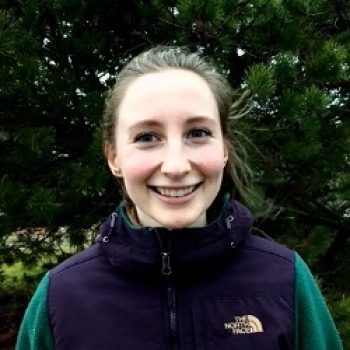 Anwen quickly became proficient in all aspects of the biomonitoring program support role, including planning and delivering Canadian Aquatic Biomonitoring Network (CABIN) and STREAM protocol training programs, writing grants, and reporting on outcomes. Her biggest takeaway from working with Living Lakes is an understanding of “how essential it is to build community-based water monitoring programs.” She continued, “having access to accurate, up-to-date data about water will become increasingly important for communities as the effects of climate change become more severe.”
Anwen quickly became proficient in all aspects of the biomonitoring program support role, including planning and delivering Canadian Aquatic Biomonitoring Network (CABIN) and STREAM protocol training programs, writing grants, and reporting on outcomes. Her biggest takeaway from working with Living Lakes is an understanding of “how essential it is to build community-based water monitoring programs.” She continued, “having access to accurate, up-to-date data about water will become increasingly important for communities as the effects of climate change become more severe.”
Anwen left Living Lakes to pursue her Master’s of Resource Management (Planning) degree at Simon Fraser University (SFU), where her project explored how nature-based solutions might support reconciliation efforts through a Pacific Institute for Climate Solutions funded project called “Living with Water”. She has since continued on to a PhD, investigating collaborative water governance and planning. She also works as a research assistant with Living With Water, helping to plan and facilitate participatory water governance mapping initiatives.
“My work with Living Lakes Canada gave me an important baseline on water issues in Canada and a greater awareness of the existing knowledge gaps in decision-making,” she credits. Anwen’s drive and passion are an inspiration, and we eagerly look forward to following her work in watershed-level planning and climate adaptation.
Katie Kushneryk
Whether it’s the vast expanse of the ocean or a babbling brook, Katie has always been drawn to water. After completing a BSc in Marine Biology and Environmental Studies at the University of Victoria and working on ecology and environmental education projects with various nonprofit organizations, government agencies, and academic institutions, Katie’s path led her to work with Living Lakes Canada.
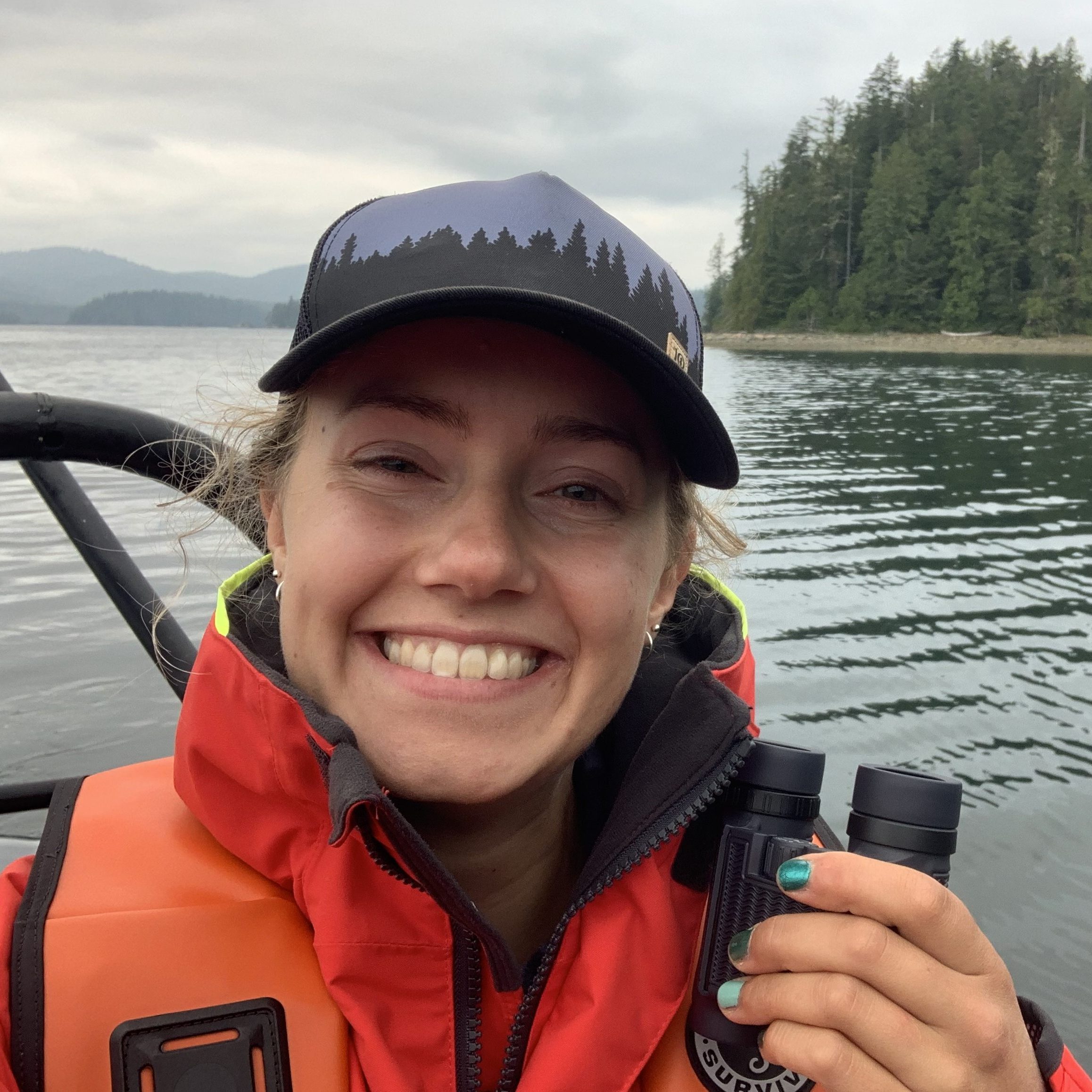 During her time with Living Lakes as a Biomonitoring Assistant, Katie helped redesign the Biomonitoring Program to better meet community stewardship group goals. Her role involved planning logistics for fieldwork, assisting with the development of educational materials, and supporting the delivery of freshwater biomonitoring training for First Nations communities and community stewardship groups.
During her time with Living Lakes as a Biomonitoring Assistant, Katie helped redesign the Biomonitoring Program to better meet community stewardship group goals. Her role involved planning logistics for fieldwork, assisting with the development of educational materials, and supporting the delivery of freshwater biomonitoring training for First Nations communities and community stewardship groups.
Katie’s experience with Living Lakes reinforced the importance of swift action to protect freshwater sources. “Drought and other immediate climate issues that affect our freshwater bodies have tangible impacts on us all. Strong collaboration and communication between community stewardship groups, environmental NGOs, academia, and all levels of government (including Indigenous governments) is crucial for addressing these issues in a timely manner,” said Katie.
Katie is currently a Resource Management Officer with Parks Canada and is working with the Pacific Rim National Park Reserve’s resource conservation team to monitor the health of terrestrial and marine ecosystems. Part of her work involves actively restoring coastal ecosystems, as well as monitoring the state of important habitats such as coastal sand dunes, eelgrass meadows and salmon-bearing creeks.
We wish Katie the best as she continues her environmental conservation journey.
Amelia Smart
During a summer internship with Living Lakes Canada, Amelia Smart explored the world of water data collection, developed water monitoring technical skills, and grew excited about furthering her education. As a professional athlete on the Canadian National Alpine Ski team, Amelia is no stranger to facing challenges head on and glided right into the water monitoring field at speed.
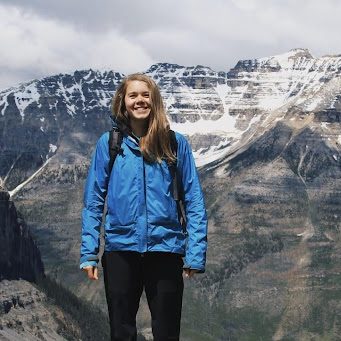 Garbed in hip waders, Amelia gained valuable fieldwork experience as the Data Technician for the Columbia Basin Water Hub. She had the opportunity to participate in a Canadian Aquatic Biomonitoring Network (CABIN) course and hydrometric training led by Living Lakes, as well as a LakeKeepers workshop co-hosted by Living Lakes and the BC Lake Stewardship Society.
Garbed in hip waders, Amelia gained valuable fieldwork experience as the Data Technician for the Columbia Basin Water Hub. She had the opportunity to participate in a Canadian Aquatic Biomonitoring Network (CABIN) course and hydrometric training led by Living Lakes, as well as a LakeKeepers workshop co-hosted by Living Lakes and the BC Lake Stewardship Society.
When Amelia wasn’t outdoors collecting water data, she helped to upload new incoming datasets to the Water Hub. Although meticulous work, it’s a critical step for supporting data-driven decision-making in the Columbia Basin.
From both Amelia’s experience in the field and behind the computer, her biggest takeaway was “getting to see all the facets of what goes into collecting useful water data.” Amelia reflected, “I appreciated my internship experience as it provided the opportunity for youth, like me, to be involved in real-world stewardship experience.” In turn, Living Lakes Canada recognizes Amelia’s contribution to water monitoring in the Columbia Basin.
Equipped with new skills and knowledge, Amelia is currently working to complete the Masters of Water Security program at the University of Saskatchewan. We wish Amelia the best of luck as she pursues her education, as well as competes on the World Cup circuit.
Tomba Paagman
From intern to Master’s student in International Land and Water Management at Wageningen University & Research, Tomba Paagman is carrying forward lessons learned from her time with Living Lakes Canada.
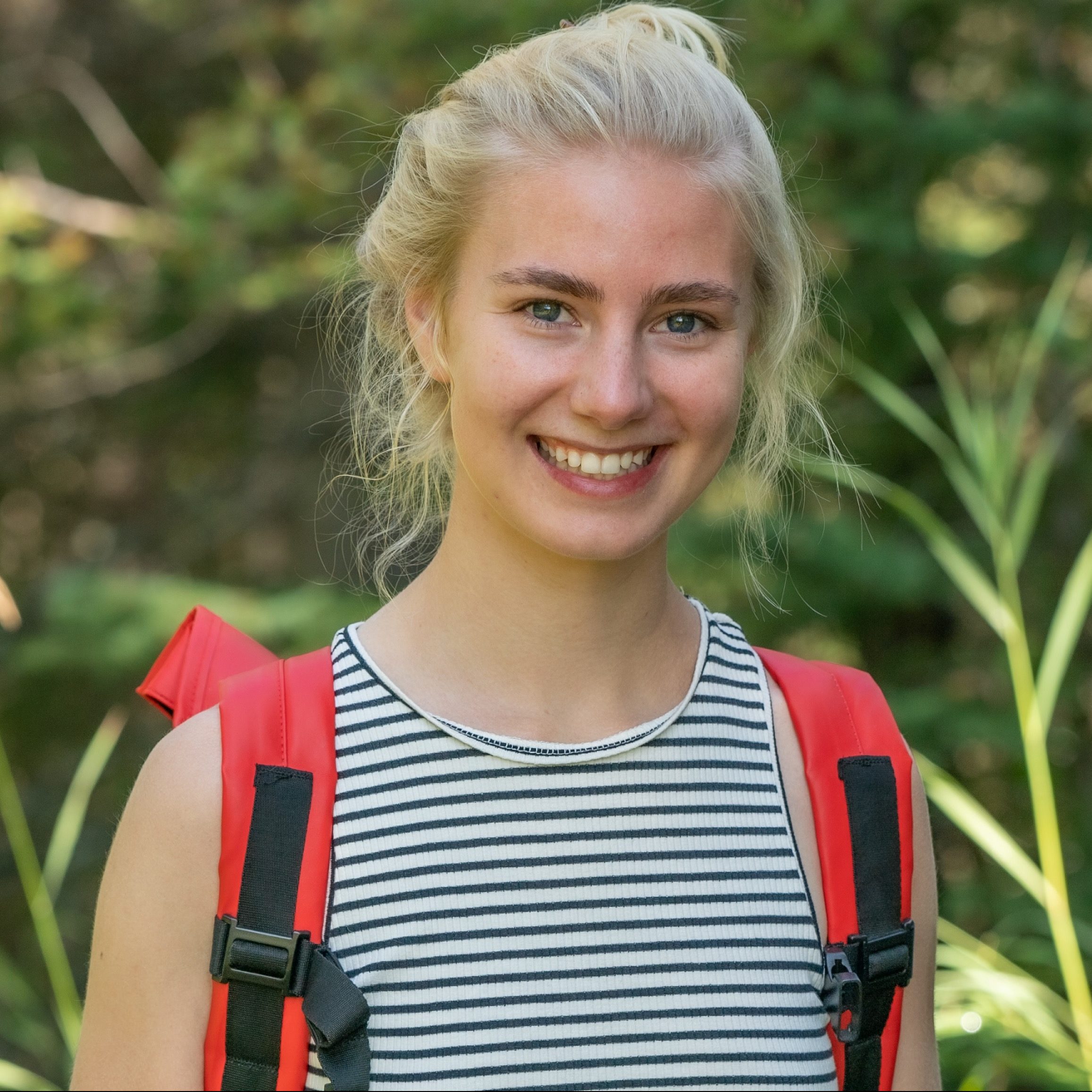 During her internship with Living Lakes, Tomba dug into whether the water availability of streams can keep pace with domestic water consumption and forest fire suppression. Guided by Paul Saso, Living Lakes Program Hydrologist, Tomba’s thesis report would go on to help Living Lakes Canada to further investigate how forest fire suppression and available resources intersect with climate change predictions.
During her internship with Living Lakes, Tomba dug into whether the water availability of streams can keep pace with domestic water consumption and forest fire suppression. Guided by Paul Saso, Living Lakes Program Hydrologist, Tomba’s thesis report would go on to help Living Lakes Canada to further investigate how forest fire suppression and available resources intersect with climate change predictions.
But it wasn’t all thesis research; Tomba had the opportunity to wade through waterways as a field technician for Living Lakes Canada’s Rivers and Streams project and the Kootenay Watershed Science (KWS) program. Living Lakes also facilitated Tomba’s work with the Columbia Wetlands Stewardship Partners, Columbia Basin Water Monitoring Collaborative and Youth Climate Corps Program where she assisted in monitoring wetland and stream health. Slogging through seas of sedges and battling thick underbrush is challenging work, Tomba’s field experience with Living Lakes contributed to the collection of water quality and quantity data in the summer of 2021.
Although Tomba will specialize in land management in her master’s program, she reflected that “land and water go hand in hand and you can not treat one, without treating the other.” Tomba’s understanding of the interconnectedness between water and land and her appreciation for streams and rivers stems from her experience with Living Lakes.
We wish Tomba the best as she furthers her education and hope the lessons learned with Living Lakes continue to guide her career within the environmental sector.
Sabrina Hu
As tributaries come together to form a flowing stream, it is through the pooling of many efforts that our freshwater protection initiatives come to life. A student of the University of British Columbia’s Master of Land and Water Systems Program, Sabrina Hu joined Living Lakes in the summer of 2023 as a Climate Scenario Intern seconded to the Foreshore Integrated Management Planning (FIMP) program.
 Sabrina was asked to develop a climate scenario analysis framework for FIMP. The framework aims to increase the understanding of climate change uncertainties to help inform future lake management and support climate resiliency. Following an in-depth review of climate scenario analysis, along with past and present versions of the FIMP methodology, Sabrina developed a framework outlining the steps of applying scenario planning alongside FIMP to provide a methodology for collaborating and protecting the lake foreshore.
Sabrina was asked to develop a climate scenario analysis framework for FIMP. The framework aims to increase the understanding of climate change uncertainties to help inform future lake management and support climate resiliency. Following an in-depth review of climate scenario analysis, along with past and present versions of the FIMP methodology, Sabrina developed a framework outlining the steps of applying scenario planning alongside FIMP to provide a methodology for collaborating and protecting the lake foreshore.
The objective is to provide more information to various levels of government, Indigenous and non-Indigenous communities, and stakeholders, for better informed and collaborative lake-related decision-making under the impacts of climate change. In this report, the scenario planning methodology from previous studies was reviewed and adopted to design a community-based FIMP scenario planning methodology.
Additionally, Sabrina supported research, planning, reconnaissance, and reporting processes for various FIMP projects.
“This internship was an excellent experience that taught me a lot about how to apply my knowledge in solving real-world water issues,” said Sabrina. “I also learned how to build good relationships with people through effective communication with respect and humility. I sincerely thank Pacific Institute for Climate Solutions program and Living Lakes Canada for giving me the opportunity to gain valuable experience early in my career.”
Sabrina completed her internship and returned to her Masters program at UBC, which she graduated from in the fall of 2023.
Jacqueline Rowe
As a Lakes Program Intern for the 2024 summer season, Jacqueline brought her passion for conservation and community building to Living Lakes Canada.
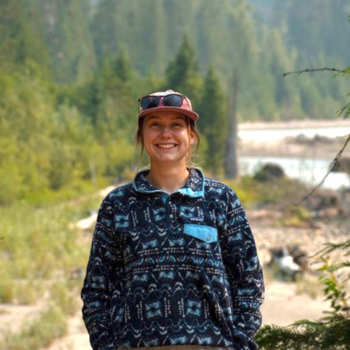 Jacqueline made a meaningful impact through her work with the Foreshore Integrated Management Planning and Yukon Lakes Monitoring Initiative programs. This included workshop development, community outreach, First Nations engagement, and grant writing.
Jacqueline made a meaningful impact through her work with the Foreshore Integrated Management Planning and Yukon Lakes Monitoring Initiative programs. This included workshop development, community outreach, First Nations engagement, and grant writing.
Jacqueline’s enthusiasm for environmental stewardship is infectious, “There are a lot of people out there that care deeply and are doing incredible work. Sometimes it is easy to get bogged down in the doom and gloom of climate change, but if you look around, people are doing impactful work everywhere, so focus on making a difference and contributing where you can!”
Jacqueline has since returned to her studies, working to complete her Bachelor of Sustainability degree at the University of British Columbia Okanagan, where she has also taken on a leadership role within the Sustainability Course Union.
We are excited to see all that Jacqueline will accomplish in her studies and emerging career.
Victor Yin
Of all of Living Lakes Canada’s programming, the National Lake Blitz stands out for its wide geographic and demographic reach. This volunteer program aims to be inclusive and accessible to all, and Victor’s work helped to expand these efforts.
 As the Lake Blitz Program Assistant in the summer of 2024, Victor worked directly with Lake Blitz volunteers to improve their experience. Victor engaged with volunteers online to field questions, developed communications materials, and provided French translations for both the Lake Blitz and its sister program, the Lake Biodiversity Photo Challenge. Victor shares, “My time with Living Lakes has been invaluable in developing my professional skills and understanding the importance of collaboration and effective communication in a successful team.”
As the Lake Blitz Program Assistant in the summer of 2024, Victor worked directly with Lake Blitz volunteers to improve their experience. Victor engaged with volunteers online to field questions, developed communications materials, and provided French translations for both the Lake Blitz and its sister program, the Lake Biodiversity Photo Challenge. Victor shares, “My time with Living Lakes has been invaluable in developing my professional skills and understanding the importance of collaboration and effective communication in a successful team.”
Victor left Living Lakes to work with the Comité FrancoQueer de l’Ouest as a Program Manager, where he focuses on supporting marginalized groups in official-language minority communities. Victor notes that, “Working with and supporting a diverse group of people, like the Lake Blitz volunteers, has strengthened my ability to support people from all backgrounds.”
Thank you, Victor, for your work in supporting and improving the Lake Blitz volunteer experience while promoting accessibility within the program!

